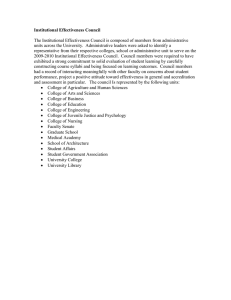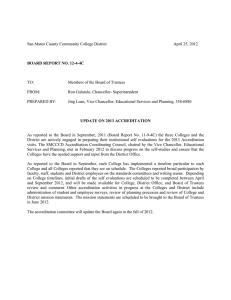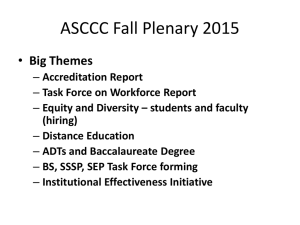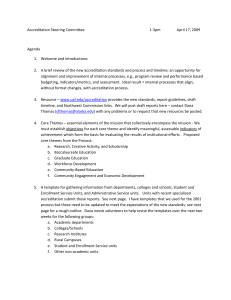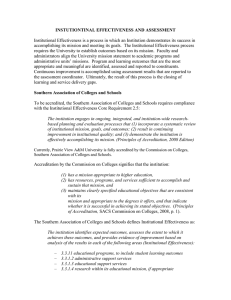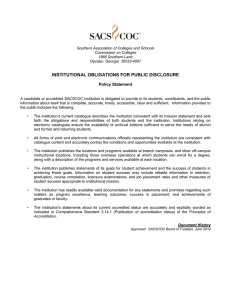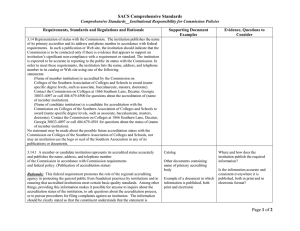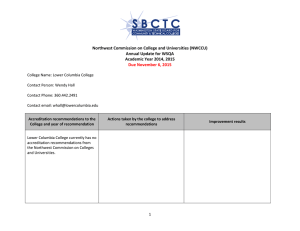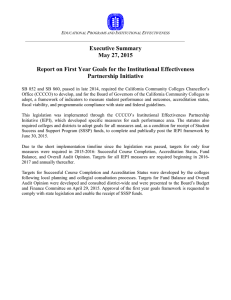DISTANCE EDUCATION - Policy Statement -
advertisement
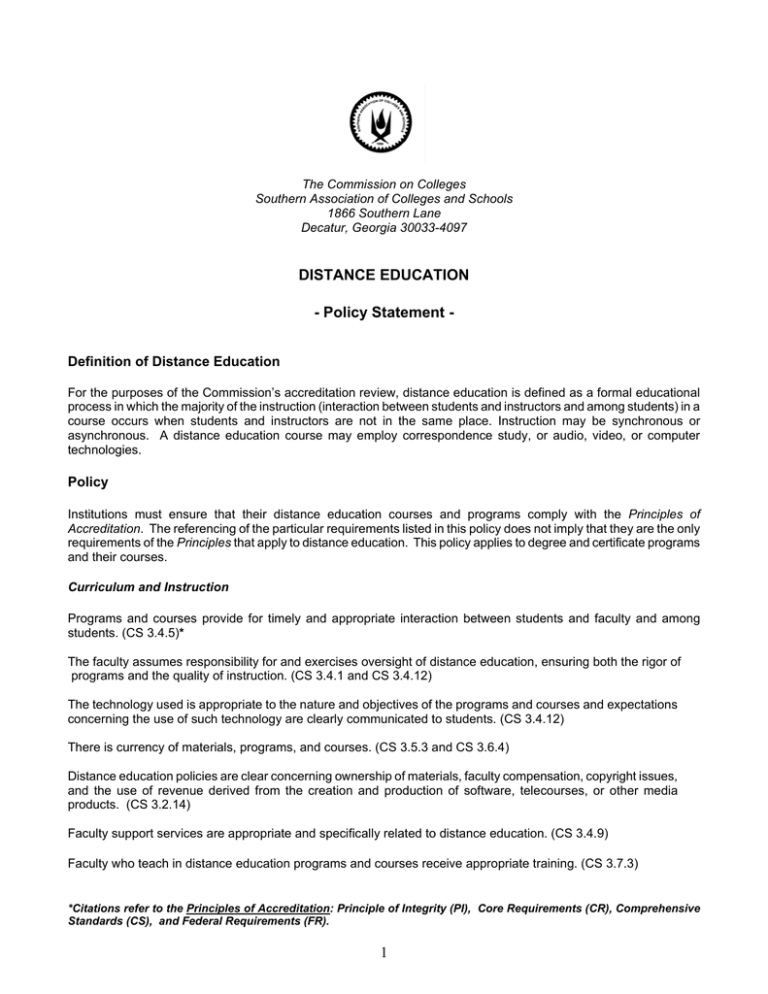
The Commission on Colleges Southern Association of Colleges and Schools 1866 Southern Lane Decatur, Georgia 30033-4097 DISTANCE EDUCATION - Policy Statement Definition of Distance Education For the purposes of the Commission’s accreditation review, distance education is defined as a formal educational process in which the majority of the instruction (interaction between students and instructors and among students) in a course occurs when students and instructors are not in the same place. Instruction may be synchronous or asynchronous. A distance education course may employ correspondence study, or audio, video, or computer technologies. Policy Institutions must ensure that their distance education courses and programs comply with the Principles of Accreditation. The referencing of the particular requirements listed in this policy does not imply that they are the only requirements of the Principles that apply to distance education. This policy applies to degree and certificate programs and their courses. Curriculum and Instruction Programs and courses provide for timely and appropriate interaction between students and faculty and among students. (CS 3.4.5)* The faculty assumes responsibility for and exercises oversight of distance education, ensuring both the rigor of programs and the quality of instruction. (CS 3.4.1 and CS 3.4.12) The technology used is appropriate to the nature and objectives of the programs and courses and expectations concerning the use of such technology are clearly communicated to students. (CS 3.4.12) There is currency of materials, programs, and courses. (CS 3.5.3 and CS 3.6.4) Distance education policies are clear concerning ownership of materials, faculty compensation, copyright issues, and the use of revenue derived from the creation and production of software, telecourses, or other media products. (CS 3.2.14) Faculty support services are appropriate and specifically related to distance education. (CS 3.4.9) Faculty who teach in distance education programs and courses receive appropriate training. (CS 3.7.3) *Citations refer to the Principles of Accreditation: Principle of Integrity (PI), Core Requirements (CR), Comprehensive Standards (CS), and Federal Requirements (FR). 1 Admission and recruitment policies and decisions take into account the capability of students to succeed in distance education programs. (CS 3.4.3) Comparability of distance education programs to campus-based programs and courses is ensured by the evaluation of educational effectiveness, including assessments of student learning outcomes, student retention, and student satisfaction. (CS 3.3.1) The integrity of student work and the credibility of degrees and credits are ensured. (PI 1.1, CS 3.4.6, CS 3.5.3, and CS 3.6.4) Library and Learning Resources Students have access to and can effectively use appropriate library resources. (CS 3.8.2 and CR 2.9) Course requirements ensure that students make appropriate use of learning resources. (CS 3.8.2) Access is provided to laboratories, facilities, and equipment appropriate to the courses or programs. (CS 3.8.1 and CS 3.8.2) Student Services Students have adequate access to the range of services appropriate to support the programs, including admissions, financial aid, academic advising, and delivery of course materials, and placement and counseling. (CR 2.10) Students have an adequate procedure for resolving their complaints. (CS 4.5) Advertising, recruiting, and admissions information adequately and accurately represent the programs, requirements, and services available to students. (PI 1.1 and FR 4.6) Students enrolled in distance education courses are able to use the technology employed, have the equipment necessary to succeed, and are provided assistance in using the technology employed. (CS 3.4.12) Facilities and Finances Equipment and technical expertise required for distance education are available. (CS 3.4.12) Long-range planning, budgeting, and policy development processes reflect the facilities, staffing, equipment and other resources essential to the viability and effectiveness of the distance education program. (CS 3.3.1, CS 3.8.3, and CS 3.11.3) Adopted: Commission on Colleges, June 1997 Updated in accord with the revised Principles, December 2006 2

